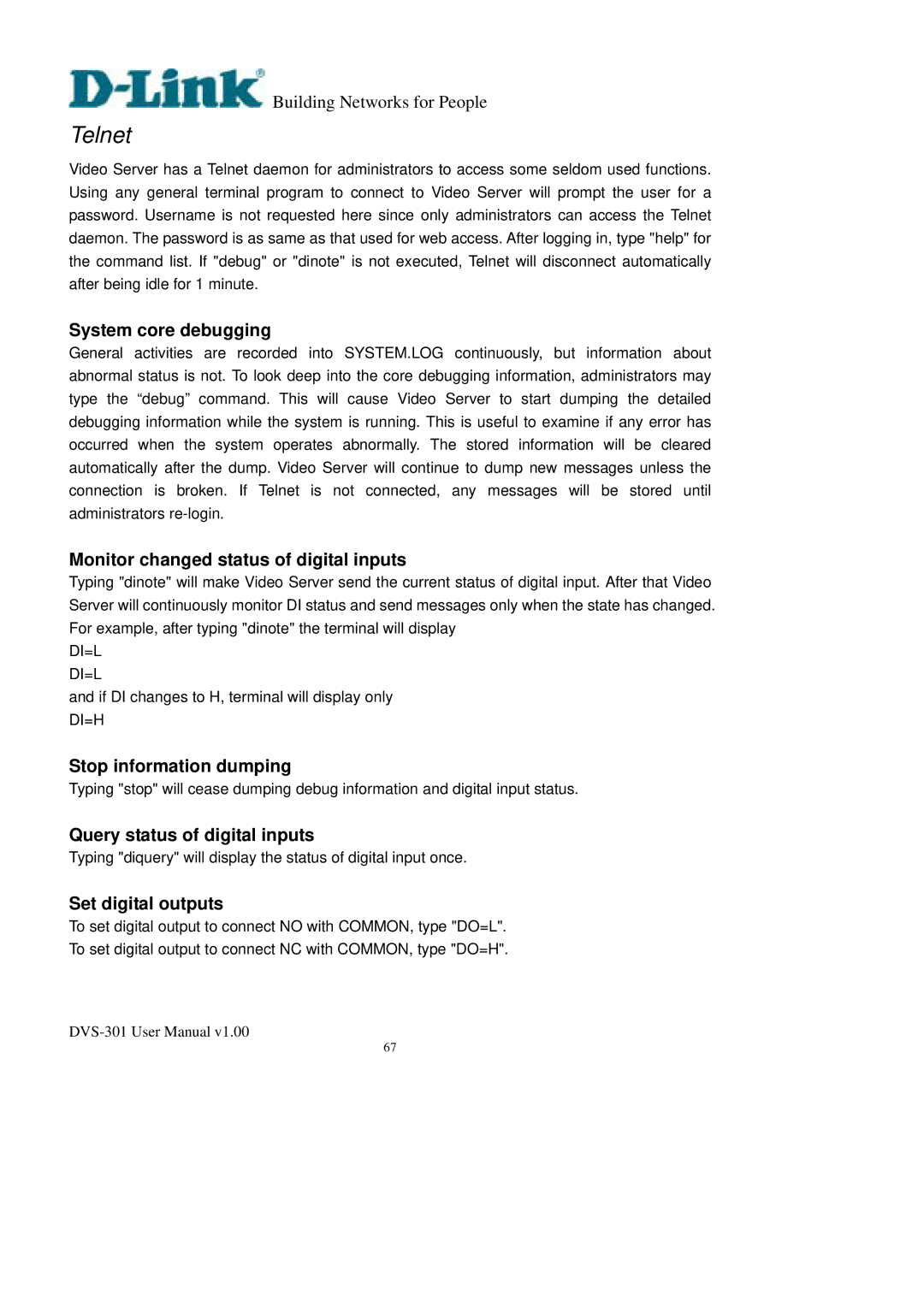Building Networks for People
Telnet
Video Server has a Telnet daemon for administrators to access some seldom used functions. Using any general terminal program to connect to Video Server will prompt the user for a password. Username is not requested here since only administrators can access the Telnet daemon. The password is as same as that used for web access. After logging in, type "help" for the command list. If "debug" or "dinote" is not executed, Telnet will disconnect automatically after being idle for 1 minute.
System core debugging
General activities are recorded into SYSTEM.LOG continuously, but information about abnormal status is not. To look deep into the core debugging information, administrators may type the “debug” command. This will cause Video Server to start dumping the detailed debugging information while the system is running. This is useful to examine if any error has occurred when the system operates abnormally. The stored information will be cleared automatically after the dump. Video Server will continue to dump new messages unless the connection is broken. If Telnet is not connected, any messages will be stored until administrators
Monitor changed status of digital inputs
Typing "dinote" will make Video Server send the current status of digital input. After that Video Server will continuously monitor DI status and send messages only when the state has changed. For example, after typing "dinote" the terminal will display
DI=L
DI=L
and if DI changes to H, terminal will display only DI=H
Stop information dumping
Typing "stop" will cease dumping debug information and digital input status.
Query status of digital inputs
Typing "diquery" will display the status of digital input once.
Set digital outputs
To set digital output to connect NO with COMMON, type "DO=L".
To set digital output to connect NC with COMMON, type "DO=H".
67
